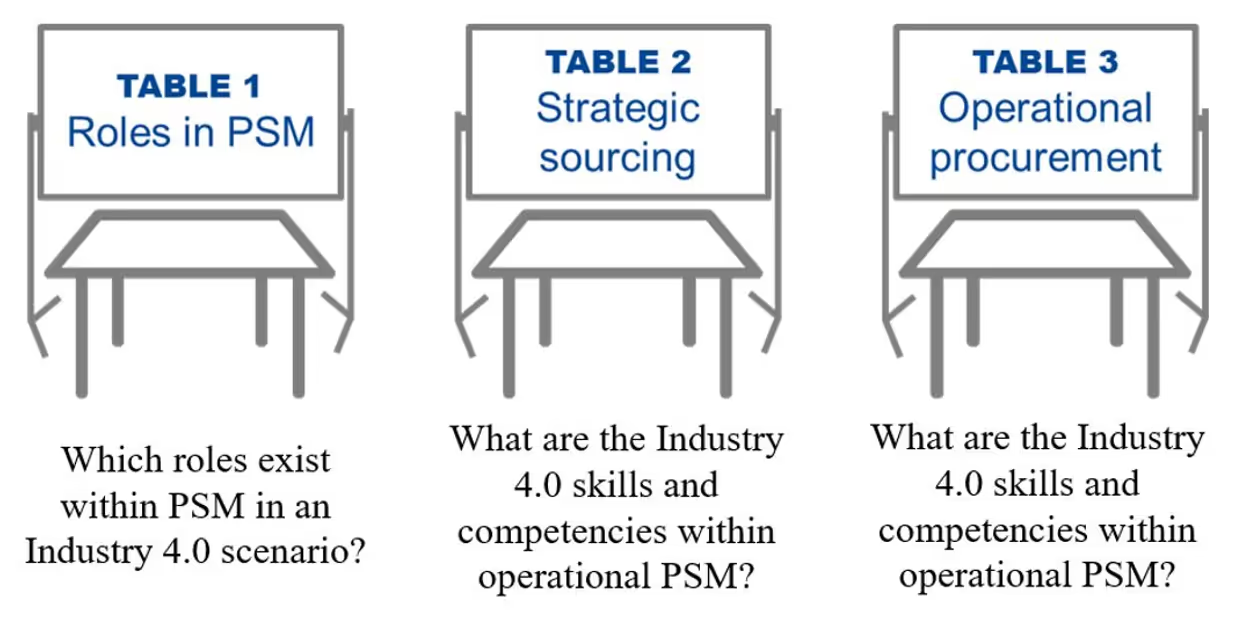Qualitative Prestudy by conducting World Café Sessions and Expert Interviews as a Starting Point for the Delphi Studies
This paper reports the results of Intellectual Output 2 (IO2) of the PERSIST project, by presenting the main findings of the expert workshops and interviews conducted during 2020. The focus of project PERSIST is to investigate the role of Purchasing and Supply Management (PSM) in the era of industry revolution 4.0 (machine-to-machine communication). The project aims to provide new content, including new forms of education, in order to prepare students in European higher education institutions for any future developments by providing a framework for PSM skills in dealing with the challenges and opportunities brought about by industry revolution 4.0. The project’s aims are as follows:
- Identifying those skills which are likely to prevail and those which are newly added to the profile of a European purchaser to develop an I4.0 PSM Skills framework,
- Developing a module-based course for higher education to teach these skills,
- To develop new, gamification and playful interaction oriented didactical elements for purpose student-centered teaching approach, including a gamified MOOC.
This paper reports on the World Café sessions and interviews conducted with industrial participants. The World Café method was chosen because it allows for the simultaneous exchange of knowledge between experts and the accumulation of such knowledge. The strength of the method is that participants can build insights from the information presented by others. World Cafés help, not only to share the knowledge but also to ignite innovation as participants can reach a higher degree of clarity by discussing a topic with different participants in greater detail. A well-designed World Café is the most appropriate method to be applied when researchers are aiming to access the intelligence and key thinking of groups in exploring a specific question or an issue of importance to a community, certain field of activity or business.
To contribute to the field of research and understanding, the report also generates new knowledge, especially to the development of individual-level competencies. The cost impact of procurement on the economy is significant, and effective and efficient PSM has the potential to increase the performance and innovation levels of organisations. PSM as a whole is a well-researched field, but studies into it from a Human Resource (HR) perspective are much fewer. On supply chains, analysis has often been done at the organisational level, while the individual level has been neglected. There is thus a clear academic need for more HR orientated research in the PSM field.
An empirical investigation of PSM experts operating in different countries (Estonia, Finland, Germany, Slovakia and UK) will identify the key skills and competencies needed for PSM practitioners in Industry 4.0. By understanding what these skills and competencies from PSM experts, the project aims to transfer these future requirements into the learning objectives and teaching content in order to deliver an Industry 4.0 PSM competencies framework.
The knowledge obtained from this data collection effort is also highly important from a practical perspective. Novel expert data can be used to supplement the competence requirements of Industry 4.0 PSM, as the areas of expertise in PSM are reasonably well identified in the existing literature, but the changes in processes and functions brought about by digitalisation and other Industry 4.0 factors have also changed the skills and competence requirements for PSM. In addition, competence information is likely to be needed in the recruitment of PSM personnel and in developing relevant job profiles.







